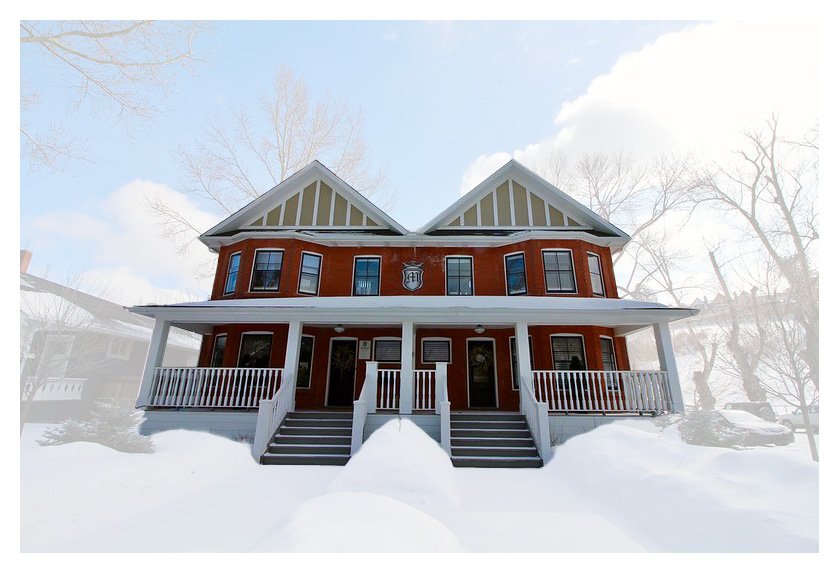How to House Hack with Rent to Own Homes?

There are many paths to financial independence. One of those paths is through real estate investing. A popular technique that numerous new real estate investors start with is house hacking. House hacking helps lower the cost of ownership and generate some passive income by renting out part of a home. To get started with house hacking, aspiring real estate investors will still need a good enough credit score and sufficient funds to buy their first property. Aspiring real estate investors without the means to buy their first home may want to consider rent to own homes as a novel way to acquire their first home. Before diving into specifically how to house hack with rent to own homes, let’s get a better understanding of house hacking.
What is House Hacking?
House hacking is the real estate investment strategy of renting out a portion of a home while living there too. Ideally, this strategy works best with multi-family homes, such as duplex, triplex, fourplex, or homes with accessory dwelling units (ADU), such as separate basement, detached, or above the garage units. Creative house hackers have also rented out rooms in their house. As with any investment strategy, there are numerous pros and cons that investors should carefully consider before pursuing it.
What Are the Pros of House Hacking?
There are numerous benefits with house hacking. The top two benefits of house hacking are lower cost of ownership and accelerated timeline to fully owning the home. Other benefits include tax deductions and hands-on experience with managing rentals.
- Lower Cost of Ownership:
The income generated from house hacking can be used to pay for the mortgage and expenses associated with owning a home. Ideally, if the rental income more than covers the expenses, then the house hacker gets to live for free and has positive cash flow. Overtime, the house hacker can then use the positive cash flow to invest in more properties, which could lead to substantial passive income and financial independence. - Faster Path to Owning the Home:
With extra income from house hacking, home owners can put more money into paying off their mortgages sooner than later. There are significant emotional benefits from being debt free and financially independent, such as improved mental health, self-esteem boost, and reduced stress and anxiety. - Tax Deductions:
For personal homes, only the property taxes and mortgage interests are tax deductible. For rental properties, expenses, such as insurance, utilities, HOA, repairs & maintenance, are also tax deductible. However, the deductible amount is proportional to what part of the home is rented out. Please, consult with a professional to completely understand what tax deduction is possible with house hacking as each house hacker’s scenario is different. - Ease Into Real Estate Investing:
Real estate investing may seem more challenging than investing in stocks or bonds, because of the huge transaction and upfront costs. However, by turning parts of their home into a rental, house hackers can ease into real estate investing and back out if real estate investing is not for them. House hackers can gain valuable experience with managing rentals and tenants.

Example of accessory dwelling units (ADUs). Images courtesy of Sightline Institute, CC BY 2.0
What Are the Cons of House Hacking?
While there are numerous benefits to house hacking, there are also disadvantages that aspiring house hackers should seriously consider. The main disadvantages are becoming a landlord and having less privacy.
- Becoming a Landlord There is considerable effort in managing tenants, handling maintenance, and understanding the legal requirements of renting. All of these could be time-consuming and lead to higher stress and anxiety, especially with managing difficult tenants. However, there is a wealth of information out there to help novice landlords develop skills and knowledge. Ask around and join local real estate investor groups or online communities, such as BiggerPockets. Developing a good tenant screening system will help drastically improve on finding a good tenant. Outsourcing the property management to a third party is an option, but may be expensive. Lastly, landlords need to be aware of and comply with the laws and regulations governing renting, such as anti-discrimination, health and safety regulations, and zoning laws. Failure to comply could lead to legal trouble and fines.
- Less Privacy House hacking requires sharing a home with tenants. The sharing of space will result in less privacy for the house hackers. Depending on the setup of the home, the level of privacy could be similar to those of an apartment or living with roommates. Homes with multiple units, such as duplex or detached units will have a bit more privacy than renting out rooms with shared common areas, such as kitchen.
What are Rent to Own Homes?
Now with a good understanding of house hacking, the next step is to understand what rent to own homes are and how it will work with house hacking. Basically, rent to own homes are homes with a clause in the rental agreement that gives the tenant the option to buy the home at a later date. Key benefits of rent to own homes are flexibility to try a home out first before buying it, opportunity to build equity, and ability for the tenant to lock in a home with time to improve their finances. There are also disadvantages with rent to own homes, such as upfront fee, higher rent and agreement that is more complex than a regular rental agreement. Nevertheless, rent to own homes are a viable option for aspiring house hackers, especially those who currently do not have the finances to buy a home. In addition, house hacking with rent to own homes does result in some unique benefits and disadvantages. A key benefit is the flexibility to try out house hacking without committing to buying the home. A disadvantage is that the house hacker is responsible for the full rent and should not rely on rent from sublease to cover their rent. If one cannot afford the expense of rent to own home, then it is better to bide one’s time and improve one’s finances.
Which House Hacking Strategy to Use With Rent to Own Homes?

What type of multi-unit is best for you? ADU, duplex, triplex, quadplex or more?
Most rent to own homes are single family homes and not multi-unit homes. Therefore, renting out rooms is probably the most likely house hacking strategy. However, to successfully house hack with rent to own single family homes, it is important to have upfront conversation with the property owner if they are alright with the tenant subletting rooms to other roommates. Some property owners are fine with it, while others may require convincing. In conversations with the property owner, it is best to use common terminology, such as subleasing or subletting, and not house hacking. If the homeowner is adamant against subletting, then move on and look for another rent to own home with a property owner that is open to subletting.
Once the rent to own home is under agreement and the house hacker has permission to sublet rooms, then the next step is to implement the house hacking plan. Things to consider in the plan but not limited to are screening roommates, drafting a subletting agreement, and establishing house rules.
- Screen Roommates:
Look within your network first for potential roommates. Do not solely rely on the words of friends and family. Ask for references. Due diligence is an important step in screening for difficult roommates. Are they financially stable and responsible? - Subleasing Agreement:
Check online for sample sublease agreements or speak with a lawyer. The agreement should contain the rent amount, length of rent, when rent is due, security deposit, pets and smoking policy, and utility to name a few. Share the sublease with potential roommates, so they understand what is in it. Lastly, the sublease agreement must comply with the main rental (rent to own) agreement. - Establishing House Rules:
It is best to be upfront with potential roommates on what the house rules are and have it in writing. For example, who is responsible for cleaning when and what, sharing food, borrowing each other’s property, noises, overnight guests, parties, etc. Setting proper expectations with your living standards should lead to a good experience living together.
However, if the idea of sharing a kitchen and bathroom with roommates and having less privacy is unappealing, then look for multi-family homes as they offer more privacy. Unfortunately, rent to own multi-family homes are harder to find as most are investor owned and investors prefer to sell those conventionally. However, with some creativity and good persuasion skills, aspiring house hackers can structure a rent to own agreement with owners of multi-unit home to make it work. For example, offer to handle the property management for the multi-unit home in exchange for a portion of the other unit’s rent or a lower rent. The upside of this approach is locking in the option to buy the multi-family home in the future and gaining the experience with managing a property. The downside of this approach is that the rental income potential is much lower.

Duplexes are considered multi-family homes. Photo courtesy of Sightline Institute, CC BY 2.0
Where to Find Rent to Own Homes?
A fundamental challenge with house hacking rent to own homes is finding rent to own homes and amenable owners. There are various ways to find rent to homes, but in the context of house hacking, efficient methods to identify multiple rent to own homes is preferred. One efficient option is to find licensed real estate brokerages that specialize in rent to own homes as they have tools and network to broadly and quickly find rent to own homes. However, most real estate agents try to avoid rent to own homes because their compensation is deferred until the home is actually sold. Nevertheless, there are real estate brokerages that specialize in rent to own homes. Persistence is required to find those brokerages. A second efficient method is to scour niche websites, like HomeFinder.com, that specialize in rent to own homes. Popular real estate websites, like Zillow and Redfin, do not have a filter for rent to own homes, so will not be of much help.
Lastly, Upwardly offers a rent to own program that may work with aspiring house hackers, especially with multi-unit homes. Contact us and find out how Upwardly can help.




